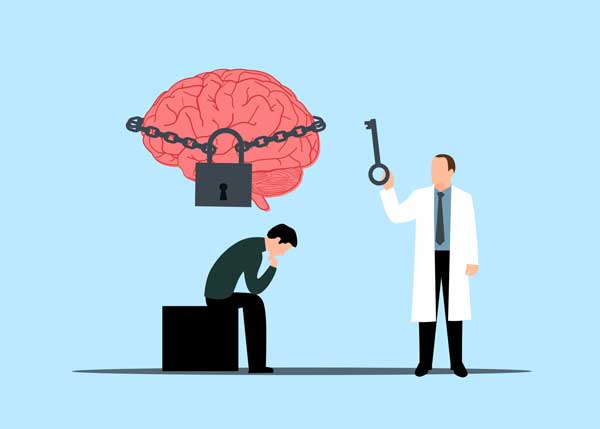FDA approves NeuroStar advanced TMS therapy for teens with major depressive disorder

[Illustration of Unlocking Teen’s Mind. Image Credit to PublicDomainPictures.net]
On March 22, 2024, the U.S. Food and Drug Administration (FDA) approved the NeuroStar Advanced Therapy System for adolescents between 15 and 21 years old struggling with Major Depressive Disorder (MDD).
This non-invasive device utilizes transcranial magnetic stimulation (TMS) to deliver gentle magnetic pulses to underactive nerve cells in the brain’s left dorsolateral prefrontal cortex, a region involved in emotional regulation.
For years, this technology has helped adults with major depression, and this breakthrough expands treatment options for younger generations facing one of the most common mental health disorders in the U.S.
Unlike traditional antidepressants, which have widely known side effects, TMS doesn’t involve taking medication or undergoing surgery.
During treatment, patients remain awake while a magnetic coil near the scalp delivers targeted pulses to specific brain regions.
These sessions are brief and require no recovery time.
The treatment typically involves daily sessions over four to six weeks, with many patients seeing improvements by the second or third week.
The delayed approval for adolescents occurred despite NeuroStar and similar TMS devices being FDA-approved for adults since 2008.
The extension to adolescents took years due to a lack of targeted clinical data.
This changed when Neuronetic, Inc. submitted documentation to the FDA in 2024 consisting of a retrospective analysis of 1,169 adolescents treated across 347 U.S. centers.
The analysis of this 2023 adolescent study showed that over 77% experienced meaningful clinical improvement, and within that group, 30% reported a significant reduction in depressive symptoms.
As a result, the FDA cleared this device as equivalently safe and effective for teens as for adults.
Traditionally, treatments for adolescent depression have relied heavily on SSRIs (Selective serotonin reuptake inhibitors) like Prozac or Lexapro, and psychotherapy.
However, these medications often come with side effects like weight gain or emotional numbness, and are not effective for everyone, often leading to treatment-resistant depression (TRD).
In contrast, NeuroStar offers a non-medication alternative with minor side effects.
However, the device has limitations.
Common mild to moderate side effects include scalp discomfort, headaches, tingling, spasms or twitching of facial muscles, and lightheadedness, which tend to improve with continuous sessions.
There’s also a rare but serious risk of seizure (less than 0.1%), which is screened for beforehand.
Additionally, the treatment requires commitments up to 30 sessions across six weeks, and can be cost prohibitive, costing up to $15,000 without insurance.
Ongoing research is still needed to fully understand any potential long-term side effects.
The FDA’s approval of NeuroStar for teens demonstrates the continuous efforts of physicians and scientists to develop safer and more advanced treatments for mental health.
According to the National Institute of Mental Health, 1 in 5 U.S. adolescents experience a major depressive episode each year, with nearly 60% receiving no treatment at all.
As neuropsychiatric research continues to explore circuit-based models of depression, the use of repetitive TMS (rTMS) in younger generations is a pivotal step towards new, viable treatment options.

- Seyoung Park / Grade 12 Session 11
- The Webb Schools

![THE HERALD STUDENT REPORTERS [US]](/assets/images/logo_student_us.png)
![THE HERALD STUDENT REPORTERS [Canada]](/assets/images/logo_student_ca.png)
